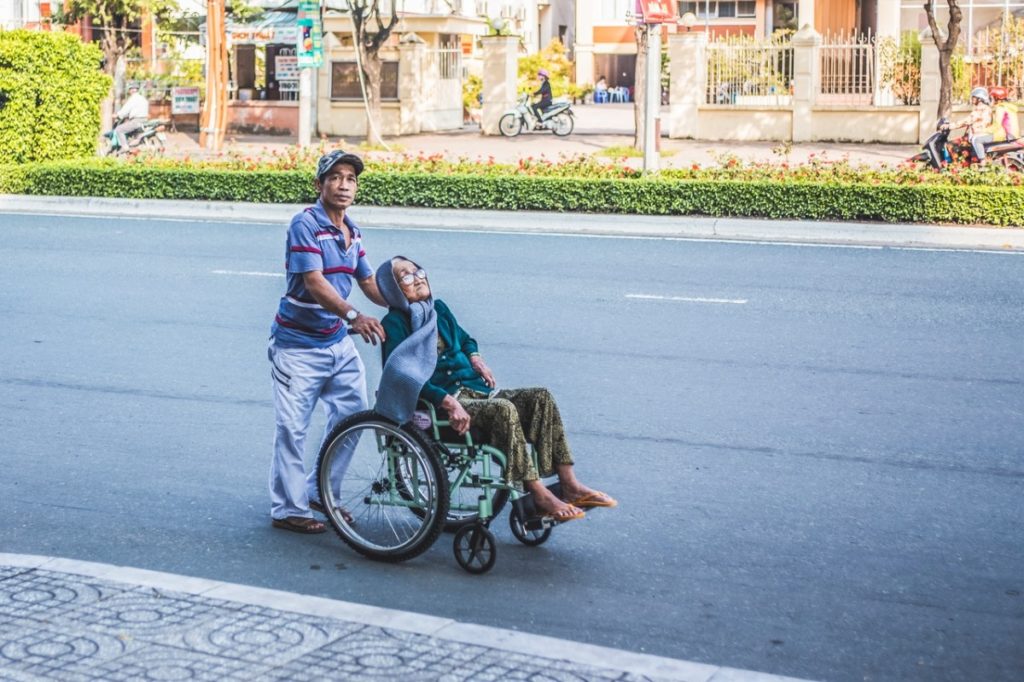The U.S. Centers for Disease Control and Prevention (CDC) says that our elderly loved ones have a high risk of developing severe symptoms should they contract COVID-19. If we live with them, we need to find ways to keep them safe as long as the virus is not eradicated. Here are some tips to keep our elderly relatives safe and healthy during the pandemic.
Take all the necessary health and safety precautions
One year into the pandemic, these are the same old boring strokes we need to keep doing to keep ourselves and our loved ones safe:
- Wear a CDC-approved mask every time you leave the house.
- Keep a physical distance of at least six feet from others.
- Wash and sanitize your hands properly every time you come home.
- Keep the same distance from your elderly relatives when you’re home, especially if you leave the house a lot, whether for work or errands. There will be plenty of time for hugs once COVID-19 is gone or after you’ve all had the vaccine.
- Maintain cleanliness in the house at all times. Make a habit of wiping high-touch surfaces such as doorknobs and handles using a natural and gentle surface disinfectant.
- Choose nutritious meals like vegetables and fruits, instead of unhealthy ones like fried meals and junk food. Make sure everyone in the household stays dehydrated as well, especially as we approach the warmer months.
Stay abreast of the number of cases
Last year, Italy was badly struck by the virus, and healthcare workers scrambled as ICUs and resources faltered and could not handle the wave of cases. The country is also known for having a higher death toll since it had a bigger population of elderly citizens.
As long as your mental health allows, make sure that you’re constantly updated on the number of cases in your hometown. It will help remind you to be as careful as you need to be when you go out, and it will also help you prepare in advance should hospitals in your area be full.

Stock up on basic medical supplies
It’s not about being alarmist; it’s about being prepared for whatever may come. Buy a thermometer so you can check anytime for fever and a pulse oximeter to be able to check your elderly loved one’s oxygen and pulse levels. Make sure that your elderly relative’s medicines are always complete and that you’re stocked up for at least a month to prevent frequent visits to the pharmacy. If your elderly relative has breathing problems, an oxygen tank might also come in handy.
Keep important numbers handy
Ensure you have a copy of their primary care provider’s updated contact information, especially if your elderly parent or relative already has bouts of memory loss. It will come in handy when you have medical questions instead of going to Google for answers. No one knows and understands your elderly loved one’s health more than their doctor, so make sure that you keep in contact with them to gain an insight on how you can help.
Find ways to connect even while social distancing
Just because you’re keeping a physical distance from them, it doesn’t mean you need to disconnect relationally and emotionally. Ask them if there’s any specific food that they’re craving (but make sure it’s good for them), teach them how to do video calls so you can do it together, or they can call their friends and family. To care for our elderly loved ones is to care for them holistically.
Consider home care
Sometimes, the best care we can provide for our loved ones is by entrusting them to compassionate and skilled professionals. Institutions like Charing Healthcare caters not just to the physical needs of our elderly parents or relatives; they also provide them with dignity and emotional care during their stay. If your relatives also have impaired mobility and other more serious health issues that make it impossible for you to pay them attention 24/7, sending them to home care might be the best, safest, and healthiest option for them.
Mind your own health
And last but not least, take care of yourself too! Exercise at least 15 minutes per day, choose nutritious foods, meditate or pray to keep yourself calm and centred. Mind your sleeping habits—make sure you sleep at least 7 hours per night. Keep your emotional and mental health in check by opening up to your trusted friends about the difficulties.
With vaccines being rolled out across America, we might be able to see the light at the end of the tunnel soon. In the meantime, care for your elderly relative the best way you know how. Stay safe and healthy!



